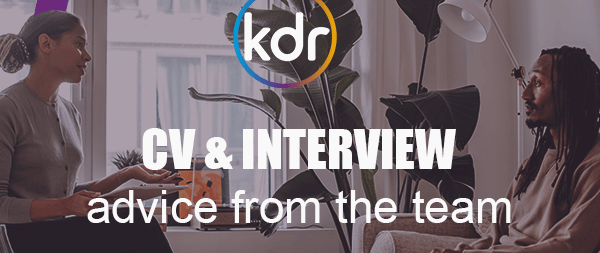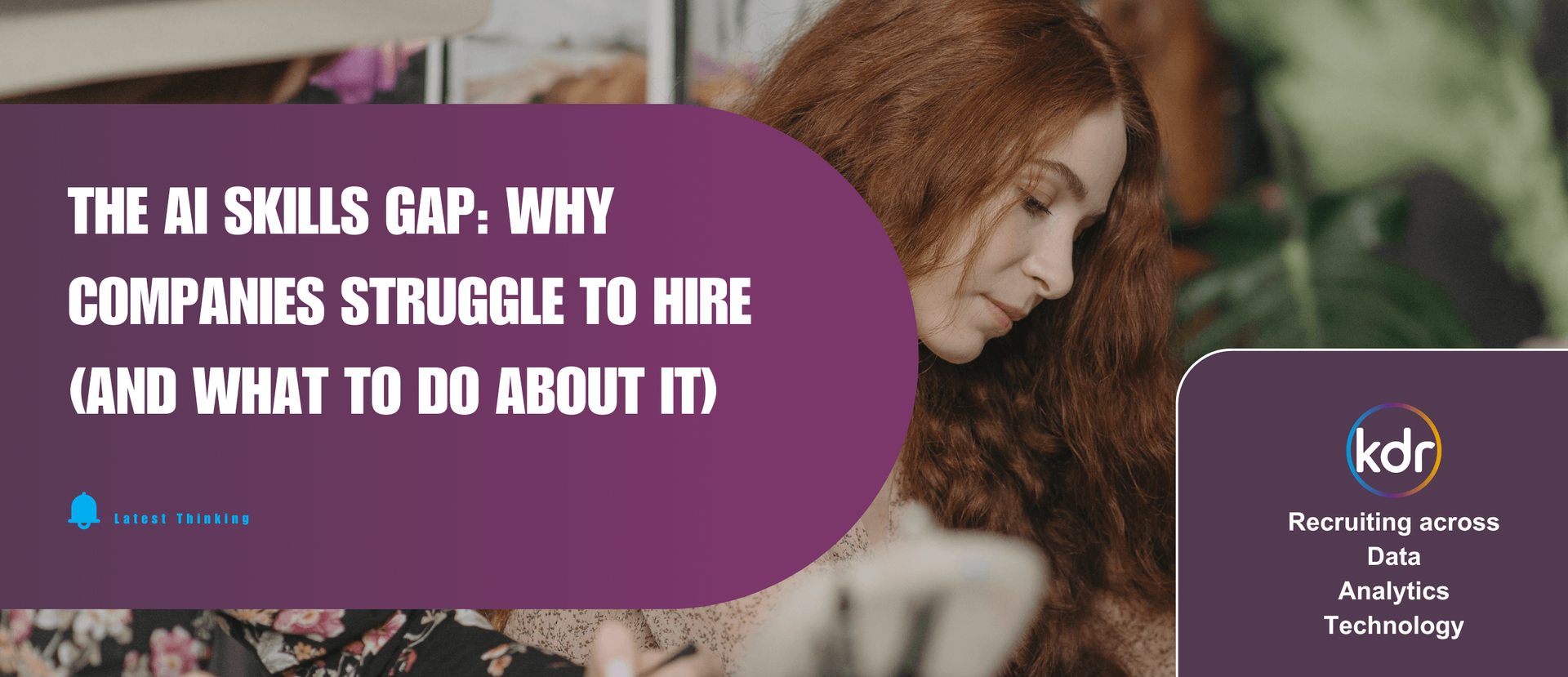Interview & CV advice - latest thinking
5 common mistakes it’s easy to make when applying and interviewing for roles.

We speak to clients a lot so in this competitive market we thought it would be useful to pass on some information about some of the common mistakes people make when applying for roles and going into interview.
Mike Thacker-Cooke – Head of Recruitment
1. I would say the top CV mistake people make is not tailoring their CV to the role. Sounds like a lot of fiddly work? Yes, it can be, especially when you are already in a full-time role. However, it represents the difference between the most successful candidates who stand out when put in front of a potential employer and those that get passed over. Keeping a CV the same for all applications can mean your relevance for the role gets missed.
If you need some assistance, speak to the recruiter who is working the role and they will always be willing to help before they put you forward. Any good recruiter will advise you, help you change the CV and complete a tailored write up highlighting all the relevant experience you have for the role and why the hiring manager should invite you to interview.
Top tip on how to go about this exercise: read the job description or advert and pick out the key skills and technologies mentioned. Also note the type of organisation it is and the work pattern they are asking for. Armed with this information look at your CV, does it reflect the advert well? If it doesn’t and you know you have the relevant experience, start to bring the information higher up your CV. Look at your opening statement, do you include those specific skills and experience in the opener? Have you highlighted key technologies in bold? Have you included the industry, if that is relevant? Do you mention that you currently work in a hybrid environment 3 days a week (for example), have you put that you thrive in a corporate/start-up/scale up environment? All these little tweaks make it easier for a hiring manager to spot when they are looking through many applications. If you are working with a recruiter taking this approach is also helpful, although as mentioned they will work with you to help you achieve the optimum CV and submission.
Ben Dugdale – Principal Consultant
2. Interviews can be a source for a few mistakes to creep in. The top mistake people make is not preparing enough or preparing in the right way.
How much is enough and what to focus on?
As a guideline, understand your CV really well. Sounds simple but so many people forget this in the interview. By that I mean, understand how you have contributed to a business. What was the business impact of a project you worked on, or an output you created. Know what skills you have and technologies you have worked with. Layer this with any other achievements you reached, so you are highlighting how you helped move the business forward or how you developed in the role. Hiring Managers are looking for clear reasons to add you to a team – what value will you bring? Employers effectively want 2 things: they want to like you and they want to know how you will improve their business. The problem some people run into is not linking their experience to an outcome, this is the easiest way to demonstrate to a potential employer the immediate value you will bring to the team. You may need to do some research around figures and how much you saved a business or brought into the business – if revenue related. If it’s not revenue related, how did you improve processes or solve an existing business challenge? List them and get your figures clear in your head. Secondly understand the business you are interviewing for. Research the company, the industry, news items, press releases, ask questions about their strategy, tell the interviewer what you like about the business and its approach to xyz, if you are not sure about something, ask. Also don’t forget to research the interviewer. Understanding a bit about who is interviewing you beforehand helps to build rapport.
Haroon Choudry – Strategy Consultant
3. Another mistake people make during the interview is not thinking of it as a two-way process. Most people spend the majority of their time at work, so it is important to know whether it is the place where you really want to spend all that time and energy. Questions like, what are the opportunities for development? what is the team structure? how mature is the data strategy? what does the tech stack look like? what is the culture? Help you assess the kind of environment you would be walking into. Based on what is important to you, think of some questions and make sure you are asking them as part of the conversation rather than tacking them onto the end. Sometimes the client will stipulate that questions can be asked at the end, but most won’t and will enjoy the 2-way flow of natural conversation.
Hally Barlow - Recruitment Consultant
4. Regardless of your current situation, never speak badly about your current employer. If you are looking to leave a toxic workplace, a good work around is to mention that you are looking for an environment that is more aligned with your values (and then go on to list them). This way you are not directly criticising your boss or team. When you do complain about an employer it can sow seeds of doubt in potential employers minds (how will you talk about them for example if they were to hire you?) Candidates can also sometimes forget to let their personalities shine through. Technical ability is great (and called for) but don’t forget you will be working side by side other people, and they want to know they can connect with you and be able to easily progress projects. Personality is important and an over reliance on technical ability can sometimes be a mistake.
Advice from KDR
5. Make sure you are voicing any reasonable adjustments needed up front. All clients completely understand and it is absolutely ok to ask if needed. Without prior knowledge of hidden conditions (for example), clients can jump to conclusions if the interview puts you at a disadvantage and you don’t perform as well as you would have liked. With reasonable adjustments in place, there is no room for assumptions and jumping to the wrong conclusions as to why someone performs or behaves in a certain way.






